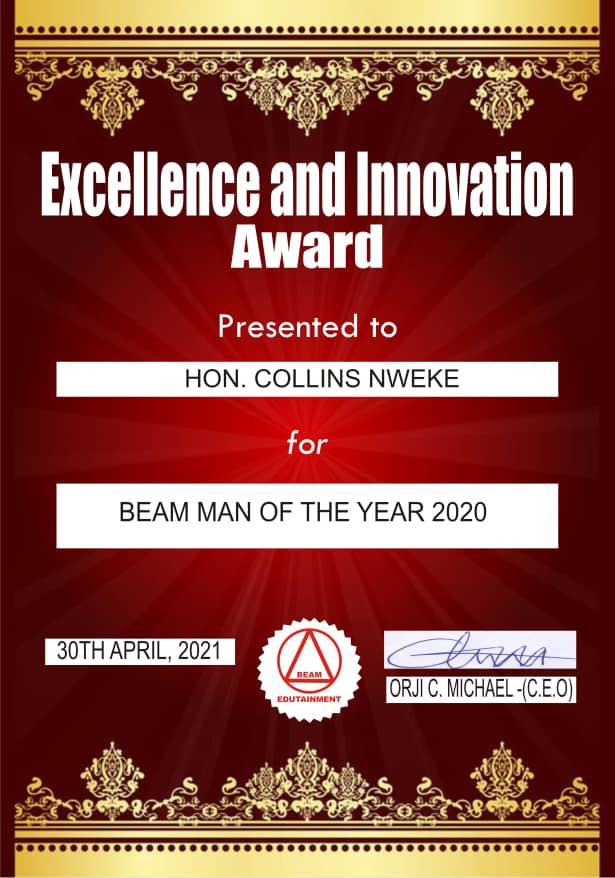Tag: Collins Nweke
Partnerships for Achieving Nigerian Diaspora Voting
Providing editorial consultancy for this documentary film project, it was my pleasure to assemble four critical resource persons under the leadership of Diaspora Industrialist and Author, Dr John C. George, to provide penetrating insights into how far Nigeria has come on Diaspora Voting. The discussants equally delved into what exactly needs to happen to make Diaspora Voting happen. The outcome is a unique cross-fertilisation of ideas.
Nigerian Diaspora Voting may be a long time in coming but it no longer is a matter of if it will happen. It is now a question of when.
Tinubu at his First UN General Assembly
Here an attempt to predict what Tinubu will be telling the world when he speaks later today at the 78th United Nations General Assembly
Reflections out of Father’s Day
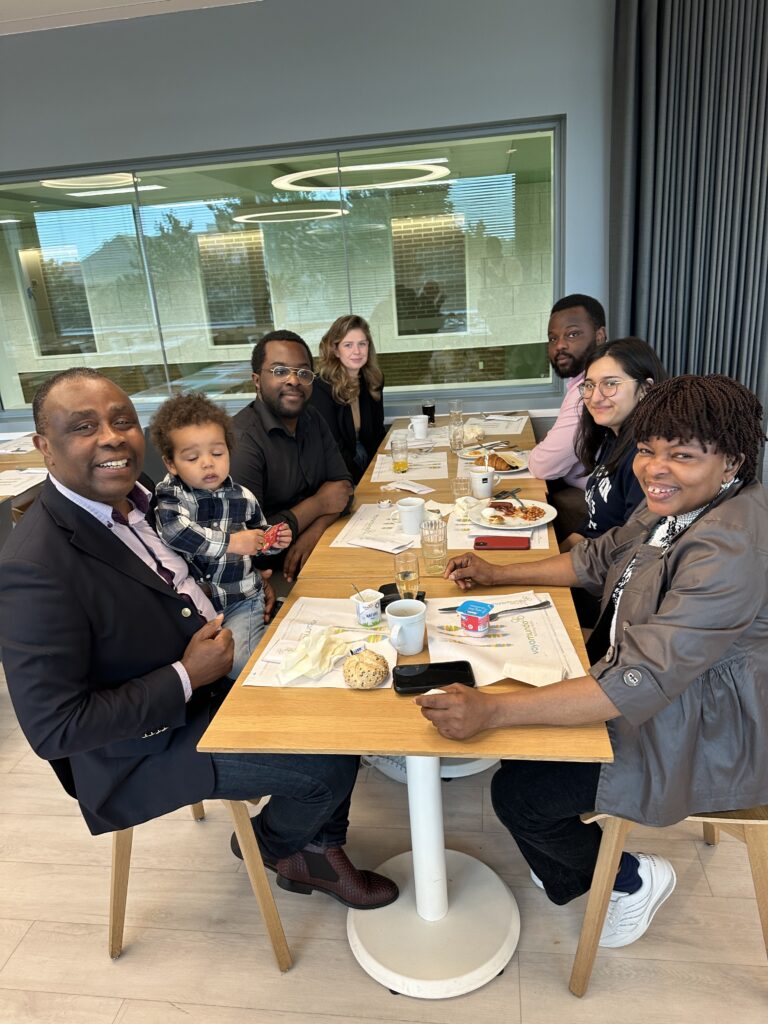
It took till late morning before we finally crawled out of bed after reviewing and sending a few enquiries over WhatsApp and receiving one or two calls.
One of the enquiries in particular was seeking permission to republish an interview I had back in February 2017 by Arukaino Umukoro of Sunday Punch Nigeria on Fatherhood:
Raising kids in Europe is challenging – Nweke.
I was flattered to read that this particular online media was keen to republish the interview as their lead article on the occasion of Father’s Day. I got even more flattered to learn that since its debut, the piece had been republished hundreds of times by different media outlets. Nice to know that people take active interest on the subject of fatherhood! And that my experience could be an inspiration to young fathers like those I fathered.
We shared the kitchen, Tonia and I, although at a point I was basically chased into a corner of the dining table while her preparation of moi-moi took all available spaces. The deal was for each one of us to make her / his favourite dish for Father’s Day.
I chose to make my Giant Meat Pie and Tonia, her Nigerian beans-cake, Moi-Moi. Yummy 😋
Just as I was putting on records that if the Giant Meat Pie turned out bad, it has to be because she dominated the kitchen, I felt a hand on my shoulder “Happy Father’s Day Daddy. How much longer will lunch take?” Meanwhile the oven had only just been pre-heated.
Everyone loved both delicacies or so my polite family said. The rest of the day was between my TV sofa, the fridge and the dinning room. Call it an ideal Father’s Day!
HAPPY FATHER’S DAY TO ALL YOU FATHERS OUT THERE AND SOME MOTHERS WHO FOR WHATEVER REASONS ARE ALSO PLAYING FATHER ROLES TOO!
http://punchng.com/raising-kids-europe-challenging-nweke/
Thinking aloud on ethics & political sagacity
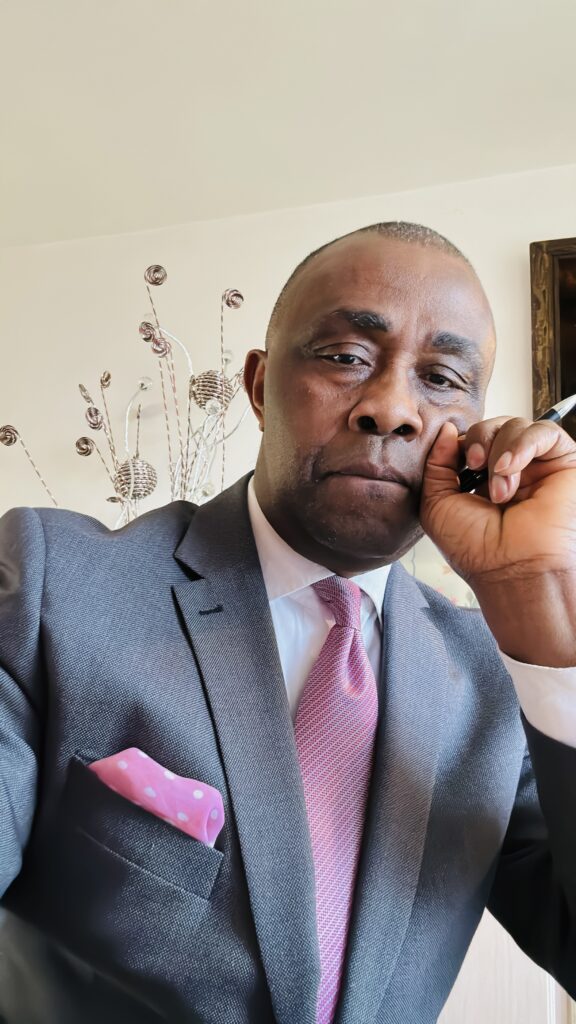
I neither called for a vote nor formally withheld my support for the motion. Thus in all political fairness, I have voted to continue an obnoxious system. As the more sagacious and experienced politician than I was, he ended his media submission with: “Collins is showing early signs of election fever. Please don’t take him seriously”
As political newcomer in my first term as Councillor for Social Affairs during the 2006 – 2012 legislative period, one of the issues that I took up the ruling socialist #leadership in council was on favouritism. More specifically, I was piqued to discover on assumption of duties that children of councillors and top civil servants were given priority in the selection for vacation #jobs in the Centre for Social Welfare. The favouritism went so far to the point that as Councillor, if you had no kids of schooling age, you could bring in grandkids, nephews, nieces or just anybody of your fancy. Just submit the name and that was it, no questions asked. As a matter of fact, the #vacancies were neither published anywhere nor publicly announced.
What I wondered aloud about was why would my kids be given priority over other kids just because their dad was Councillor? What happens then to competence? Does been my kids automatically make them more competent or better qualified than other kids, I queried the Council Chairman at the time.
I went further to suggest that if any prioritising was needed, we should consider children of clients on living wage and income support. These are exactly the #people whose networks are limited, if they have any at all. If we were serious about dismantling generational poverty, which was prevalent in our constituency at the time, that could be a place to start from. Council #leadership has sufficient #network to get their kids a vacation #job in just about anywhere in the private sector. If they are keen on their kids getting the public sector #experience, then they must compete for the job with others. Throw the student job market open, I persuaded.
At the end of my interpellation, I made what in my view at the time was a constructive proposal, but one which turned out, on the benefit of hindsight, to be politically naive. I do not wish to vote against the motion or to abruptly dislodge the existing order. But I implored Council to amend this order against the next #recruitment season a year away. We now have a whole year to plan and make a transition to a fair and equitable system.
When the #media later picked up the story and questioned the socialist Council Chairman, he denied that anything like that happened. In fact he concluded his denial by convincingly pointing to official Council records which didn’t register any objections to the motion. The motion was unanimously carried. Indeed mine were observations and recommendations. I neither called for a vote nor formally withheld my support for the motion. Thus in all political fairness, I have voted to continue an obnoxious system. As the more sagacious and experienced politician than I was, he ended his media submission with: “Collins is showing early signs of election fever. Please don’t take him seriously”
At the time, a truly independent media was scarce in my constituency. The Socialists had been in #power for such a long time and so highly networked that most journalists will rather look the other way than do a thorough investigative job. But not Johannes Hosten of the regional newspaper “De Zeewacht”. The young fearless reporter interviewed persons who in his words “were in a position to know the facts”. They all collaborated the denials of the Chair. He then went into public archives to dig up Council reports of the Sitting, which indeed confirmed my narrative. And he stated it as such, to the envy of the true progressives.
Fast forward to a decade later, when news broke about former UK Prime Minister, Boris Johnson, nominating his father for the 2023 Honours List for Knighthood. I had a moment to ponder over what I’d do. Would I nominate a family member for Honours List if I were in Johnson’s shoes? How similar or dissimilar is this to my vow never to favour family in public appointments? Recall that my point was not that my kids and those of other Councillors should not apply. Just that they should not be favoured based on our privileged positions. Indeed why should they be discriminated upon just because their parents are politically exposed?
In Boris Johnson’s shoes, I will nominate my father for Knighthood if I’m convinced that he’s qualified. I do not believe that it’s fair to discriminate against family because it’s family. Nominate but allow the system to run its full course without interference. There is still that little voice in me raising the question of #ethics. Is there an ethical question here or could this be that I have now attained the level of political sagacity that I lacked way back in the days. I kind of think that if political sagacity equates favouritism, then I’d rather remain political naivety. Not sure, just thinking aloud.
Winning pensions reform war but may loose the battle
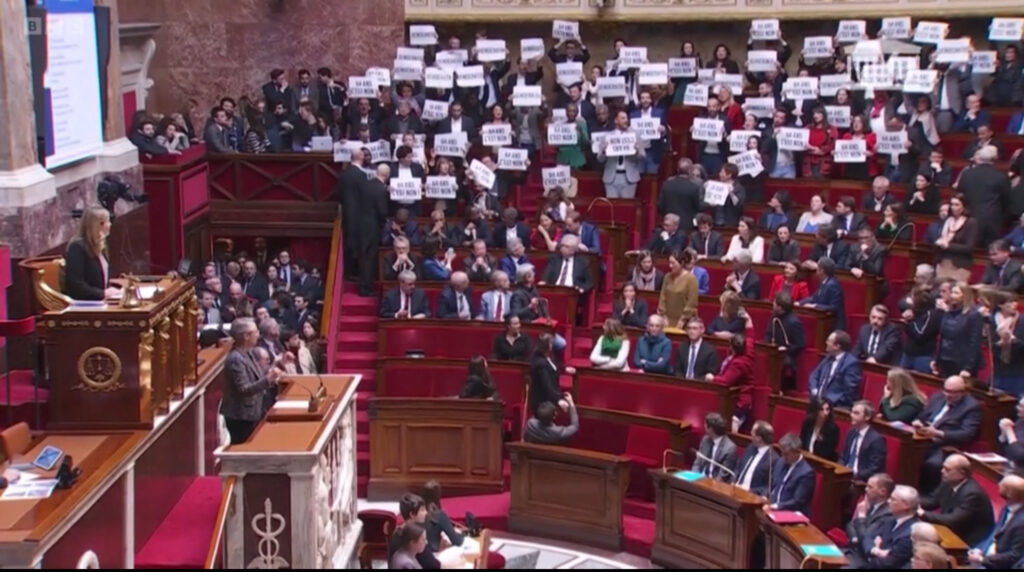
“Though Macron may ultimately be vindicated, people hardly forget legislations seen to be brutal, inhuman, and degrading. More so when they hear those on the other side of the divide tell them that there are alternatives to cutting too close to their bones.”
French President Emmanuel Macron had his Prime Minister, Elisabeth Borne trigger art. 49.3 of the French Constitution, to bypass the National Assembly in an attempt to push through unpopular pensions reform Bill without a vote.
French citizens have taken to the streets in protest. Parliamentarians are equally revolting. A call for a vote of No-Confidence is almost certain to fall anytime soon.
The dual questions here are: why did President Macron take this rather unconventional route, a serious political risk? How measured is this risk, will he survive a confidence vote?
Succinctly put, pensions reform was at the heart of Macron’s campaign for re-election. The Bill is a political exigency and Macron’s flagship legislation after re-election. He can’t be seen to have abandoned the cause and the course. Characteristically, he’s confident that the benefits of the reform will vindicate him in quick enough time for citizens to forgive him ‘his reform sins’. In other words, Mr President believes he can warm himself back to the hearts of French people.
On no-confidence vote, there is no combined, organised opposition against Macron, not on this pension reforms. Non-Bedfellows can hardly unite in the National Assembly to kick Macron out through a no-confidence vote.
President Macron’s undoing might turn out to be the abysmally low morale in France. The everyday French sees retirement as a bright spot in the future. And Macron has moved that bright spot further, thereby prolonging, at least their agony. Though Macron may ultimately be vindicated, people hardly forget legislations seen to be brutal, inhuman, and degrading. More so when the hear those on the other side of the divide tell them that there are alternatives to cutting too close to their bones.
This all looks like a war Macron will win but will loose the battle.
I joined Precious Amayo of TVC Latest News Update to dissect the French palaver… but only barely due to technical glitches. But here you have my more expansive perspectives Emmanuel Igah
The Irony of a Continent and its Diaspora
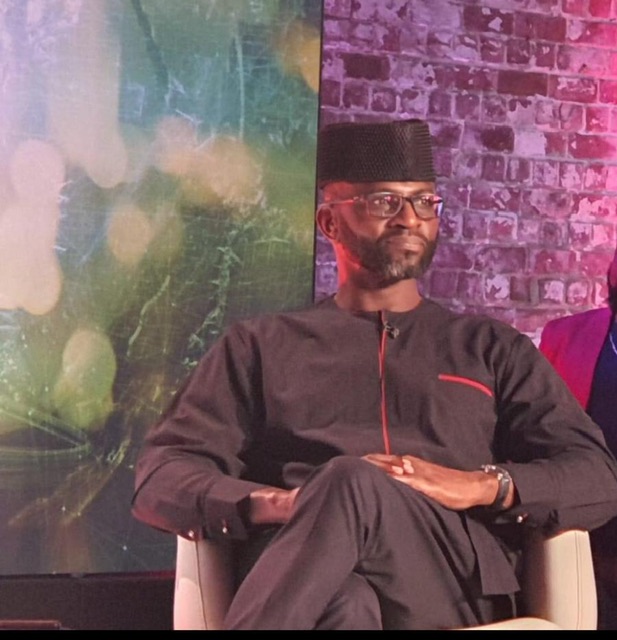
In this exposé, Nigerian-born African enthusiast, Adetunji Omotola adds his audacious voice to the cry for Africa to recognise the value that her sons and daughters bring to Africa’s growth table and purposefully mine it for the global good.
The millennium saw the emergence of Africans in diaspora as a force with which to be reckoned. Some diasporans serve in the highest levels of government and many returned to Africa,particularly in Kenya, Ghana and Nigeria. Dr Ngozi Okonjo-Iweala, the current Director General of the World Trade Organisation; Dr Akinwunmi Adesina, the current President of the African Development Bank; Wally Adeyemo, the current US Deputy Treasury Secretary, and the Nigerian Minister of Foreign Affairs, Godfrey Onyeama are some diasporans who have made it to cabinet level in Nigeria and beyond.
Nigeria leads sub-Saharan Africa in terms of diaspora remittances, with $23billion in 2019, followed by Ghana ($3billion), Kenya ($2.8billion) and South Sudan ($1.3billion). On the global remittances index Nigeria is in sixth place, with India in the lead ($79billion), China in second place ($67billion), Mexico third ($36billion), Philippines fourth ($34 billion) and Egypt fifth ($29billion). Despite these positive contributions by diaspora, there is a sense that that diasporansfeel extremely marginalized and unjustly treated. Nigerian Diasporans not having a vote is a grave injustice, when other African countries, such as South Africa, Kenya, Botswana,Rwanda and seventeen other African nations practice diaspora as a matter of course.
Nigerians in diaspora remittances still does not guarantee any inclusion into the Nigerian landscape. It also seems clear that,despite having a newly formed diaspora commission, there is no determination on embarking on a census on the numbers of Nigerians abroad. Research shows that the United States, UK, Italy, Germany and Canada have the largest numbers of Nigerians, followed by South Africa, France, Ireland, China and the Netherlands. These are the top ten countries with Nigerian populations. At the top is the USA (380,785), followed by UK (190,000), Germany (56,000), Italy (71,000), Canada (51,800),France (30,000), South Africa (30,000), Ireland (17,542), China (10,000) and the Netherlands (9,453). Great difficulty exists in determining the numbers in various African countries, due to a lack of data. According to Statistics South Africa in 2015, there were 10, 334 Nigerians who had temporary residence permits,25% of which had visitor’s visas and 355 had permanent residency permits.
Despite the success of Nigerians in foreign lands, the fact that there is still disconnectedness on many levels is painful and disheartening. There is no Nigerian national policy to absorb diasporans into the broader national landscape beyond settlements and investments. There ought to be a shift in the current haphazard methods in place for diaspora inclusion. It is a travesty of gigantic proportions that many Nigerians are ignored in a manner that creates deep concern and misery. There also exists a bias by those in authority towards Nigerians in the United States, Canada and Europe. The issue of not voting is one of the most notable examples of the failure to absorb Nigerians in diaspora into the political and economic development of the country. So many flimsy excuses are given by the members of the National Assembly and INEC regarding a lack of data and costs and also who will vote and which countries will be involved. This lack of political will is like a knee on the necks of Nigerians in diaspora, who observe voting by diasporans in Rwanda, South Africa, Botswana, Kenya and eighteen other African countries.
Nigerians in diaspora are the most educated migrants in the US. Most African doctors in South Africa are Nigerians, and there iseven a Nigerian Doctors Forum in that country. A Nigerian holds the world boxing heavyweight crown and there is the NBA most valuable player, Gianni’s Antetoukoumpo. Nigerian Ngozi Chimamanda-Adichie is a superstar and there is a slew of Hollywood actors, such as Chiwetel Ejiofor and more. There is Asa and John Boyega and Bayo Ogunlesi who owns Gatwick airport and was Trump’s adviser for some time. With all these observations it is clear that Nigerians in diaspora succeed across many formations and professions.
Nigerians in diaspora will provide Africa’s upward trajectory. What is missing at this stage is the ability of planners and African leaders work with various Nigerian diaspora groupings to access bodies like the African Union, the African Development Bank, the Pan African Parliament and regional bodies to build capacity and leverage the professionalism and skillsets of Nigerians in diaspora. The best kept secret that Nigeria and Africa by extension has in term of human capital is Nigerians in diaspora. Recently, Lt. Victor Agunbiade was given an award for his extraordinary accountability. Agunbiade received the Navy and Marine Corp Development medal for successfully managing $68 million. The amount represented 70% of its overseas disbursing volume. Agunbiade who was in charge of the money while he served as disbursing officer, comptroller department, Camp Lemonier in Djibouti (Horn of Africa) from October 2019 to July 2020, achieved 100% accountability among six rigorous inspections and independent audits with zero discrepancies.
Nigerians have become notable in the USA. Dr Bennet Omalu was the first person to discover and publish on chronic traumatic encephalopathy in American footballers. (Will Smith plays him in the 2015 film Concussion). In the legal space ImeIme A. Umana is the first black woman to be elected President of the Harvard Law Review in its 131 year history. Pearlana Igbokwe is the President of Universal Television and the first woman of African descent to head a major US studio. Dr Jacqueline Nwando Olayiwola is an Associate Professor at the University of California and the author of “Papaya Head” which speaks to first generation African Americans. Jacqueline’s siblings are Okey Onyejekwe, a medical doctor, Meka Don a lawyer turned rapper and Sylvia Onyejekwe, a lawyer. Jacqueline and her brother Okey frequently undertake two mission trips to Nigeria every year.
In the Netherlands there is circular migration between Nigerians in the Netherlands and the UK. Most are employees of Royal Dutch Shell and some work for ABN Amro, Nike, Celtel, IBM and CMG. There are about 500 Nigerians with Dutch passports. In Russia there are 2100 Nigerians on Facebook.
The Nigerian diaspora population is the biggest African population, with the exception of French speaking nations. Nigerians in diaspora also contribute the highest in terms of remittances. The remittance figure of $23 billion it is almost the same size as the GDP of Africa’s bottom ten countries, Togo, Burundi, Eswatini, Sierra Leone, Liberia, Lesotho, South Sudan, Djibouti, CAR, and Gambia. Is it not ironic yet all these countries have presidents, budgets and military and they all have a say in continental African affairs? For example, each country sends five members of its national parliament to the Pan African Parliament in Midland, none of whom are diasporans, yet diaspora contributes significantly to each of these countries. South Sudan’s diaspora remittances are 36% of its GDP, while Nigeria’s are 8%.
The failure of the Nigerian government to deepen its relations with its diasporan and include them in politics and business and other sectors of the economy is probably the biggest oversight in the last three decades. The current model of meeting a few diasporans, who are handpicked by diplomats abroad, has not yielded any meaningful result in the past two decades. With the rampant corruption happening in Nigeria, it may be wise to draft diasporans who are used to living according to their means and are not desperate to buy land in Ikoyi or Maitama in a matter of months.
There is a Diaspora Commission in Nigeria and there are also committees in both houses of the National Assembly but the Diaspora Commission board is yet to be constituted and the committee members in both houses are not even known to diaspora stakeholders and their impact has not been felt in any significant manner. There is a sense that diasporans are not given the seriousness that they deserve and until major steps are taken with diasporans, Nigeria will not grow into the true economic and political giant it can and should be. One can go as far as to suggest that the diasporan ought to have slots at the National Assembly and each state house of Assembly in the same manner that women participation is desired.
The following recommendations may be considered. Firstly, all Nigerians in diaspora who are aged 18 and over should be allowed to vote by 2023. Secondly, Nigerians in diaspora need to be on a database at every high commission. The missions should see the registration as their most sacred duty. Thirdly, Nigerians abroad doing business and in professions should be encouraged to join chambers of commerce between the host countries and Nigeria. It is also important to engage in positive branding about Nigeria in the countries with big Nigerian populations. A country with 200 million people should be branding Nigeria weekly, monthly and annually. The embassies can work with the community and the media to do so. There can be no doubt that countries such as South Africa, United Arab Emirates, United States and the United Kingdom have had their fair share of Nigerian scams and fraudulent activities so it is wise to promote Nigerians who are doing very well in those countries or face stiff visa restrictions when travelling to these parts. Nigerians in diaspora are the most marginalized Nigerian group and this needs to change very quickly. No nation will reach its full potential while it ignores its most productive population.
Barrister Adetunji Omotola is the founder of the Guild of Nigerian Professionals-South Africa. He is an alumnus of the Henley Business School, Executive Speaker Programme. He is a Bloomberg Certified Financial Consultant and Founder of 12 Disciples Leaders. He is an African Media Personality and Founder of Afrospace. He blogs at www.winelawandpolitics.wordpress.com. He initially published this article under the original title : Africa in the 21st Century and the role of Nigerians in Diaspora in its trajectory
An Advocacy Birthed After a Year of Incubation
The deterioration of Nigeria has been on for quite a while. The current generation of Nigerians has not known a nation that truly held promise for them. Yet, in view of the global village which the world has become, this generation of Nigerians understand what it means for one’s country to hold promise for one. They feel deprived, rubbed and battered. Some feel defeated. A few are resilient. Yet others
are battle-ready to win back their country.
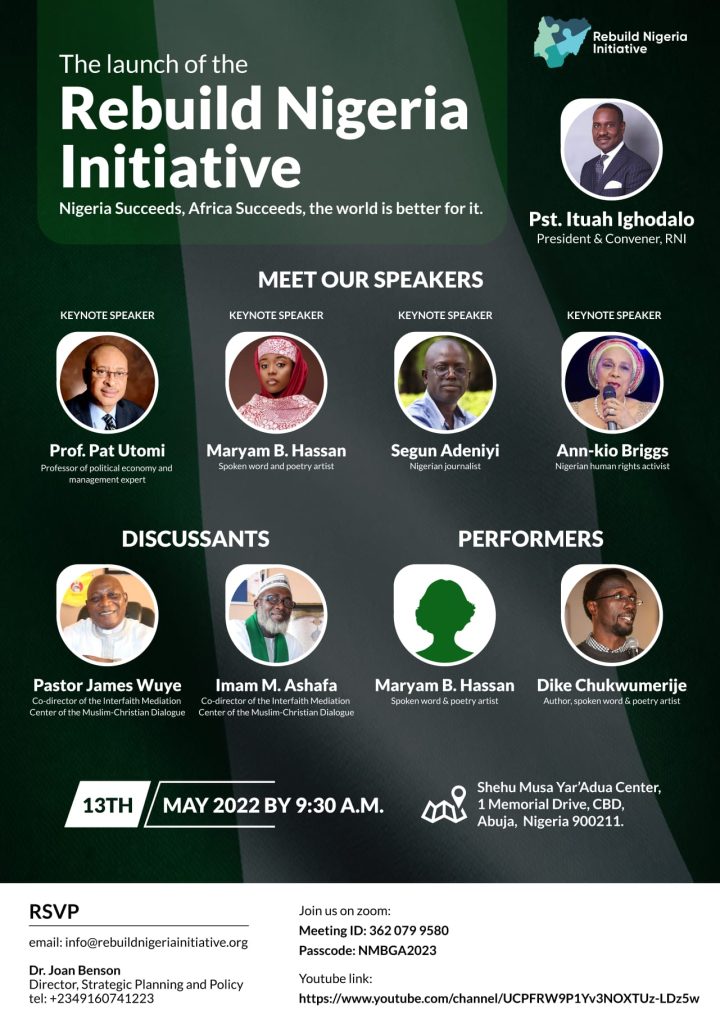
The battleground for the battle-ready young Nigerians are the streets of the country, from North to South, East to West and they manifest in banditry, kidnapping, petty to serious robbery and anything in between. It used to be that the ghost of Biafra roamed only the streets of Igboland. But with the passing years, the spirits of Oduduwa is being invoked actively while up North the chant for Arewa as a republic in whom its descendants have more faith, is getting louder. The guns have failed to silent the chants.
The fathers of this generation and their fathers look on helplessly realising that they have failed their children and grandchildren. Yet some have refused to be spectators of this carnage. They are conscious of the fact that throughout history, meaningful change was brought about by men and women who refused to be spectators of human suffering and injustice but stood up and acted. By acting, they changed their society and the world. Over the past year, in the middle of the Covid-19 pandemic, a group of Nigerians has been reflecting on these ironies of a nation and have decided to lean on the strength of others around the world who have changed their worlds by shire courage.
They have reasoned that this failing state called Nigeria, can’t be allowed to fail.
In the summation of these Nigerians, the missing link in the potential great nation that their fatherland ought to be and the weak entity that it is currently, is genuine dialogue! Nigeria must genuinely dialogue to reconcile not only its diverse people, but also its contradictions. Rebuild Nigeria Initiative was birthed to activate genuine dialogue, which is precursor to reconciliation and a halt to the speedy slide into disintegration of the largest black nation on the face of the earth. We have abiding faith in a new Nigeria, united, equitable, just and inclusive – A Nation at Peace.
Over the past year, Rebuild Nigeria Initiative has consulted widely, at home and in Diaspora, with Nigerians and friends of Nigeria. Our ambition as a group of concerned Nigerians around the world to build a global coalition of strategic stakeholders and partners, is one that strikes a cord with all who
have heard us out.
The launch of Rebuild Nigeria Initiative is the start shot of an advocacy work whose pertinence has been tested and demonstrated over an incubation phase of a year. We invite the world to meet us, to work with us, because when (not if!) Nigeria succeeds, Africa succeeds and the world is better for it!
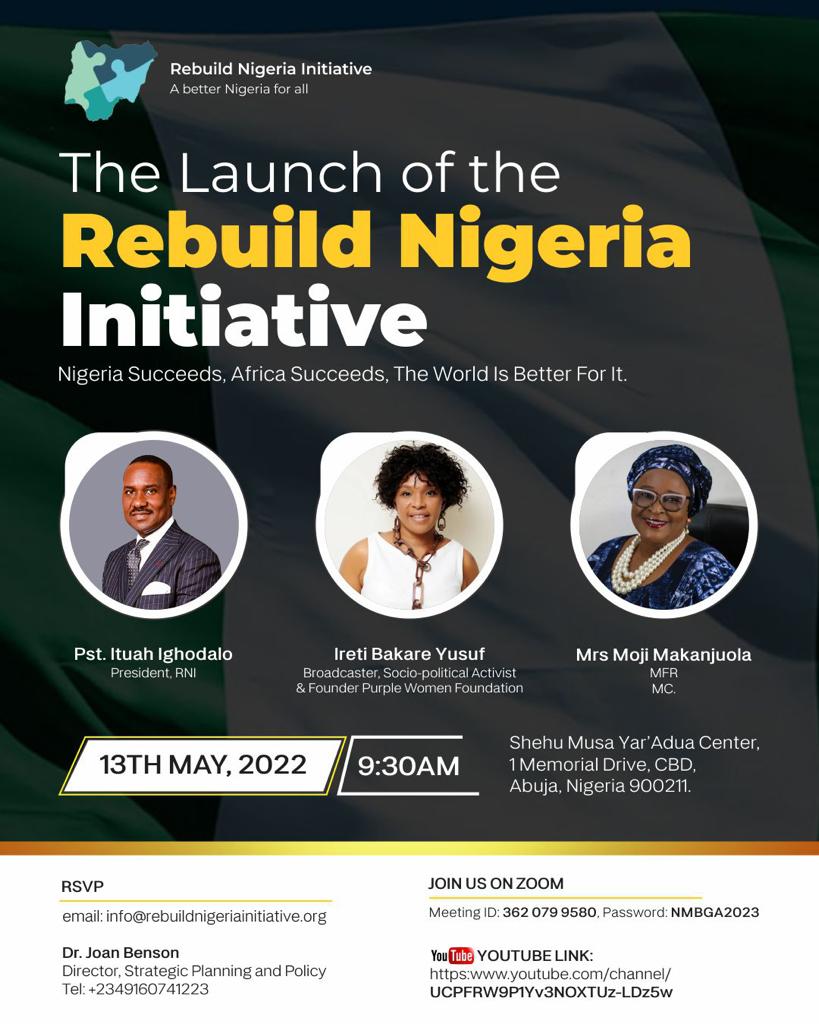
Impacting remotely through mentoring is the real deal
In one of the conversations leading to my admission as Fellow Institute of Management Consultants a few years back, I underlined a core leadership principle. This is a belief that a mentor must be more concerned about mentees he has no personal relationship with, never met and probably will never meet than those he knows in person and interacts with. This singular thought was my guiding light when I was invited to become Mentor of BEAM International, a youth based group of young, upwardly mobile professionals.
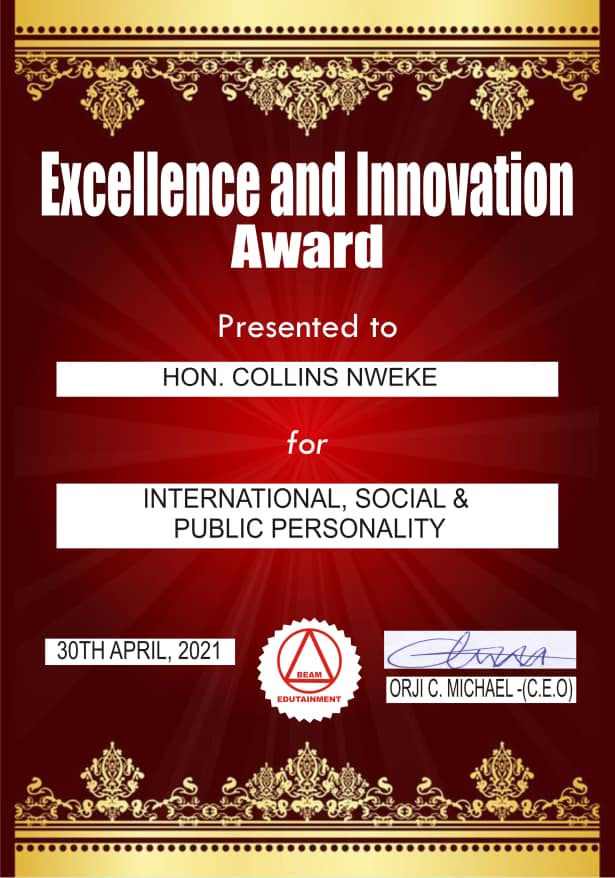
Shortly before then I had listened to Robin Cox talk about Mentoring is Courage in Action. I am aware that wasn’t the case but Cox’s audience seemed like young people in a transition economy environment. When young people are craving new information, new experiences, mentors must be there to help them process the changes that are occurring on a daily basis. When it is developmentally appropriate to test boundaries, take risks, and challenge authority especially in an environment that makes resistance and protests inevitable, mentors must be there to provide structured choice, healthy risks, and guidance in making what late US Civil Rights Activist, John Lewis called the good trouble and effecting change in one’s life and community.
These mentoring moments no doubt should happen, where possible, in person. But if we realise the impossibility of in-person mentoring for the teeming youth population in Africa needing Mentorship, we must then see our actions, especially our public utterances as a Mentorship vehicle, night after night, week after week, year after year as Robin Cox recommends. These were some of the thoughts going through my mind when I was invited in December 2020 to deliver a maiden lecture to the BEAM International platform on “Youths in International Relations” For me the lecture was a mere ensemble of insights gleaned from daily interactions and observations on our world today and the inevitable inter-relatedness of our world of tomorrow and some tips on how young people must audaciously seize the moment to shape their world.
I am unsure how to describe the feeling of waking up yesterday morning to news of multiple awards as a consequence of what to my mind were obvious statements, effortlessly put together as audio-lecture. I was to learn letter reading the Award Citation that yes the Beamers found the lecture compelling but it was more than that. This kind and bold gesture means so much to me. I have since dedicated the Awards promptly to my young adult sons, Tonna (Teejay) & Chidi through whose orbit I discovered that a learning Dad ultimately grows into mentor to millions. The job has only just begun and I recognise it as a lifelong job. No leave. No transfer!
